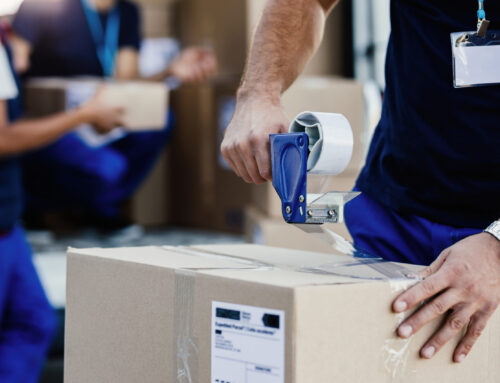Are Tariffs Disrupting Your Supply Chain?
What happens when a single policy change can shift the cost, speed, and structure of your entire fulfillment network? Tariffs are doing just that, and businesses relying on warehouse logistics are feeling the pressure. Whether you’re managing ecommerce fulfillment, omnichannel fulfillment, or FBA prep, understanding the impact of tariffs is essential to staying competitive. In this article, we’ll explain how tariffs are affecting warehouse logistics, what it means for your business, and how a logistics partner like CGA Logistics can help you stay ahead.
Understanding Tariffs and Their Reach
Tariffs are government-imposed taxes on imported goods, intended to protect domestic industries or negotiate trade deals. While the goal is often political or economic leverage, the downstream effects hit warehouse logistics directly.
For example, increased tariffs on electronics from Asia can raise the landed cost of goods, reduce order volumes, or push businesses to seek alternative suppliers, all of which influence warehouse operations.
Key Ways Tariffs Affect Warehouse Logistics
Tariffs don’t just change pricing. They disrupt logistics at every level, from storage decisions to fulfillment timelines. Here’s how:
1. Inventory Strategy Shifts
Higher import costs push companies to rethink inventory management. Businesses might stockpile goods before tariffs hit or reduce orders to avoid carrying high-cost inventory.
This can lead to:
- Overcrowded warehouses due to bulk importing
- Fluctuating storage needs, making capacity planning more difficult
- Longer inventory holding times, increasing overhead costs
We help clients navigate these shifts by offering scalable e-commerce fulfillment and omnichannel fulfillment solutions tailored to their evolving inventory strategies.
2. Supplier and Route Diversification
Tariffs on specific countries encourage companies to diversify their supplier base. But new suppliers often mean:
- New import documentation requirements
- Longer or unfamiliar transit routes
- Delays in lead times due to logistical onboarding
Warehouse logistics systems must be flexible enough to adapt quickly. This is where our robust FBA prep services and crowdfunding fulfillment solutions provide seamless transitions when changing suppliers.
3. Cost Increases in Fulfillment Operations
Tariffs raise product costs, and those added expenses often extend to fulfillment:
- Increased transportation costs due to longer routes
- Higher insurance premiums for storing higher-value goods
- Upgraded security for warehouses holding high-tariff inventory
With CGA Logistics, clients can minimize these effects through our efficient, tech-driven logistics network designed to reduce overhead without compromising speed or service.
Tariffs and E-commerce Fulfillment
E-commerce businesses are particularly vulnerable to tariff-related shifts. Online retailers often work with tight margins and high SKU counts, meaning even a small increase in product cost can have a major impact.
Impacts on e-commerce fulfillment include:
- Need for faster turnover to offset increased costs
- Changes in consumer pricing and demand forecasting
- The challenge of balancing shipping costs and delivery timelines
Our e-commerce fulfillment services are built to respond in real time to these pressures. We integrate inventory management, order fulfillment, and real-time analytics to help e-commerce businesses adapt and thrive.
Navigating Omnichannel Fulfillment During Tariff Fluctuations
Omnichannel fulfillment, serving retail, wholesale, and direct-to-consumer channels, becomes more complex with tariffs. Each channel may be affected differently by tariffs, requiring dynamic warehouse strategies.
For instance:
- Retail orders may demand lower price points to stay competitive
- Wholesale buyers may delay orders or renegotiate contracts
- D2C may require custom packaging and faster fulfillment times
We support omnichannel clients with flexible warehouse logistics solutions that can pivot based on real-time tariff changes.
Smart Solutions: How to Future-Proof Your Warehouse Logistics
Businesses can’t always control tariffs, but they can control how they respond. Here are a few actionable steps to reduce the impact of tariffs on warehouse logistics:
- Conduct Regular Cost Analyses: Re-evaluate landed costs and fulfillment expenses as tariffs change.
- Diversify Suppliers: Avoid dependency on tariff-affected regions.
- Use Scalable Warehousing: Opt for warehouse partners like CGA Logistics who offer flexible space and services.
- Implement Smart Tech: Real-time inventory tracking and predictive analytics help make informed decisions.
- Partner with Experienced Fulfillment Providers: Choose providers with expertise in e-commerce fulfillment, FBA prep, and omnichannel strategy.
Stay Ahead of the Tariff Curve with CGA Logistics
Tariffs are reshaping the world of warehouse logistics, from inventory management to shipping costs and fulfillment timelines. Understanding these changes allows businesses to proactively adjust their operations rather than scramble to respond.
With services in ecommerce fulfillment, omnichannel fulfillment, FBA prep, and crowdfunding fulfillment, CGA Logistics is equipped to help you manage the ripple effects of global trade changes. Our agile infrastructure and commitment to client success make us the ideal partner in a time of uncertainty.
Contact us today to learn how our warehouse logistics solutions can keep your business running smoothly, no matter how tariffs shift the playing field.





